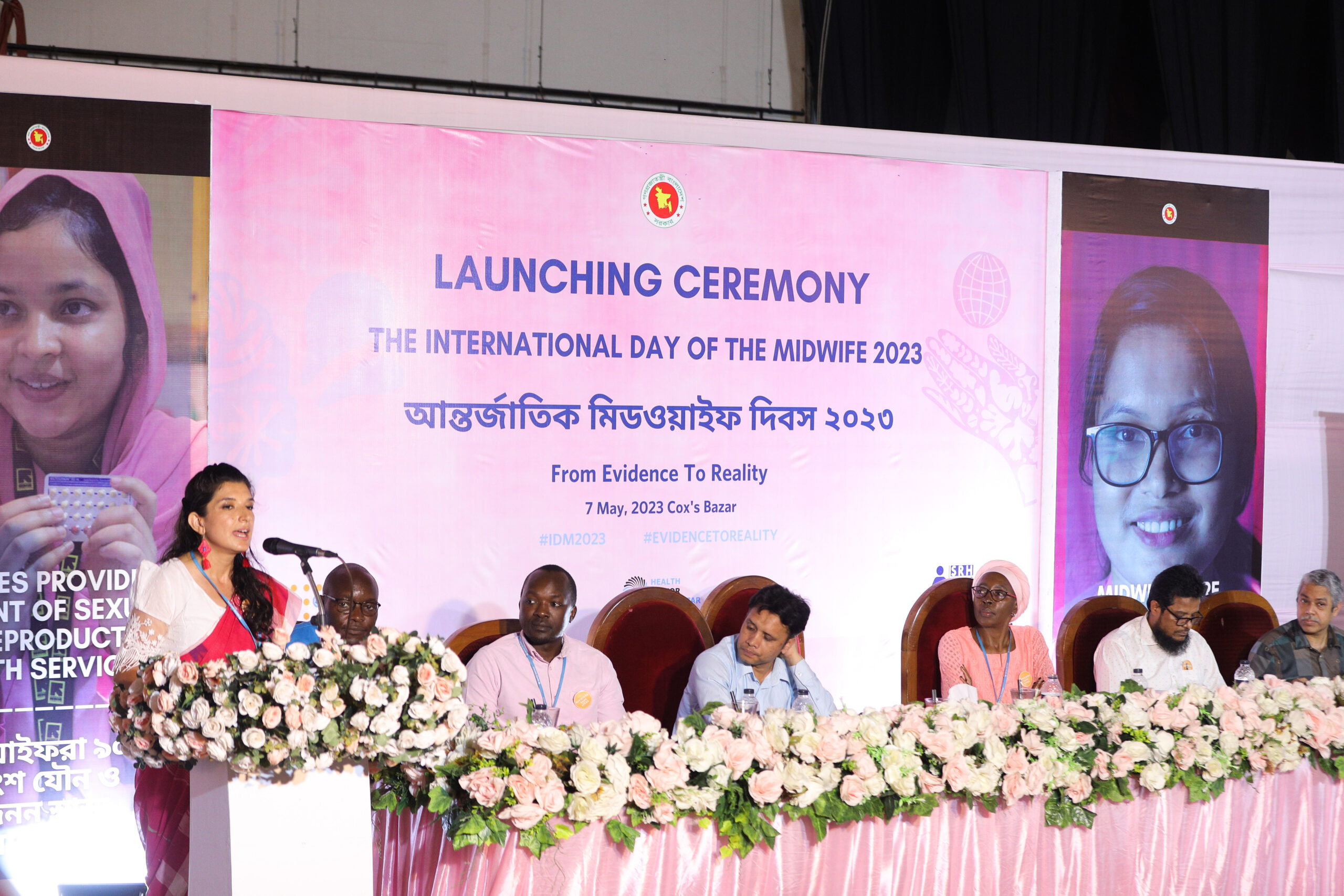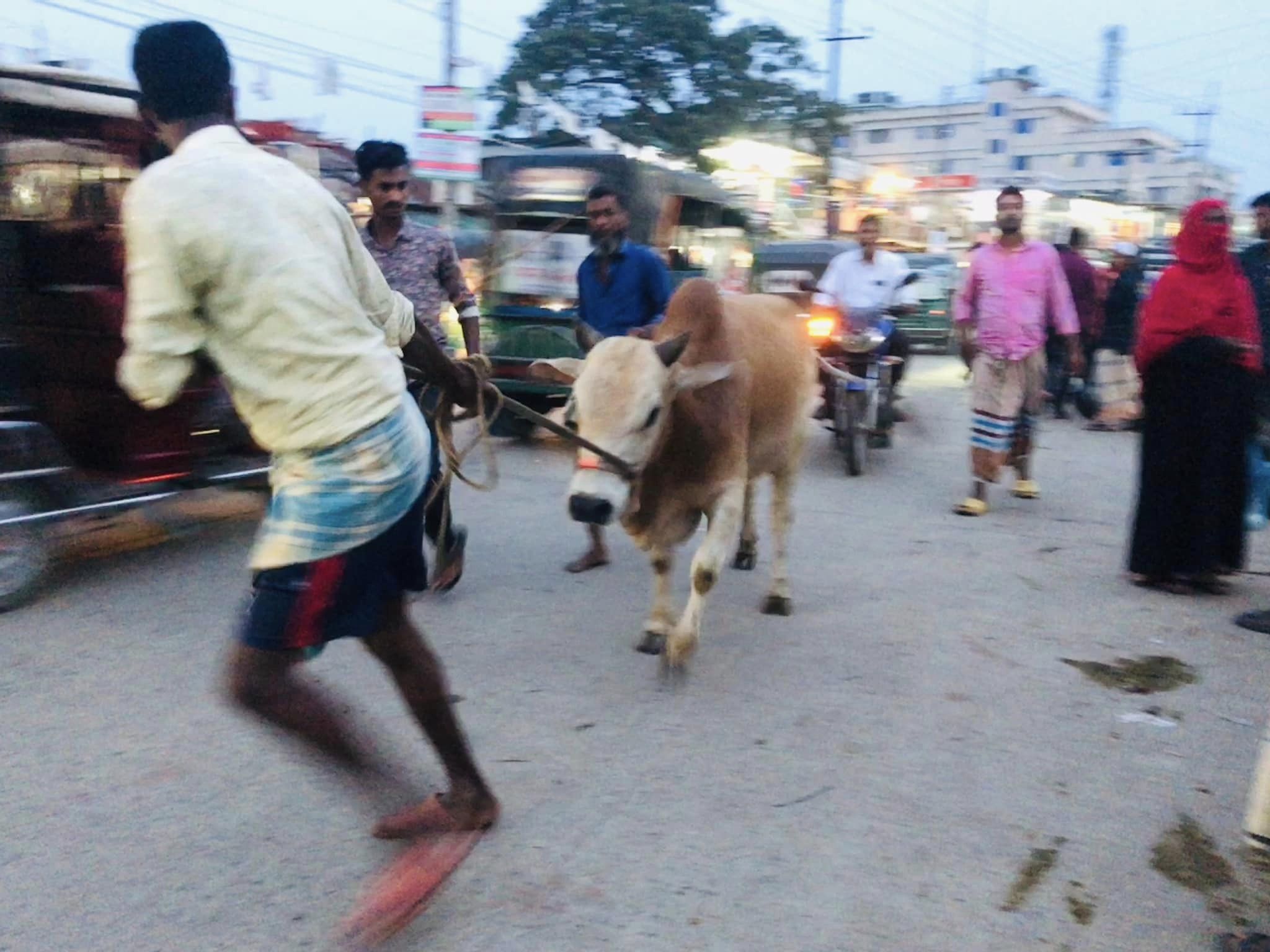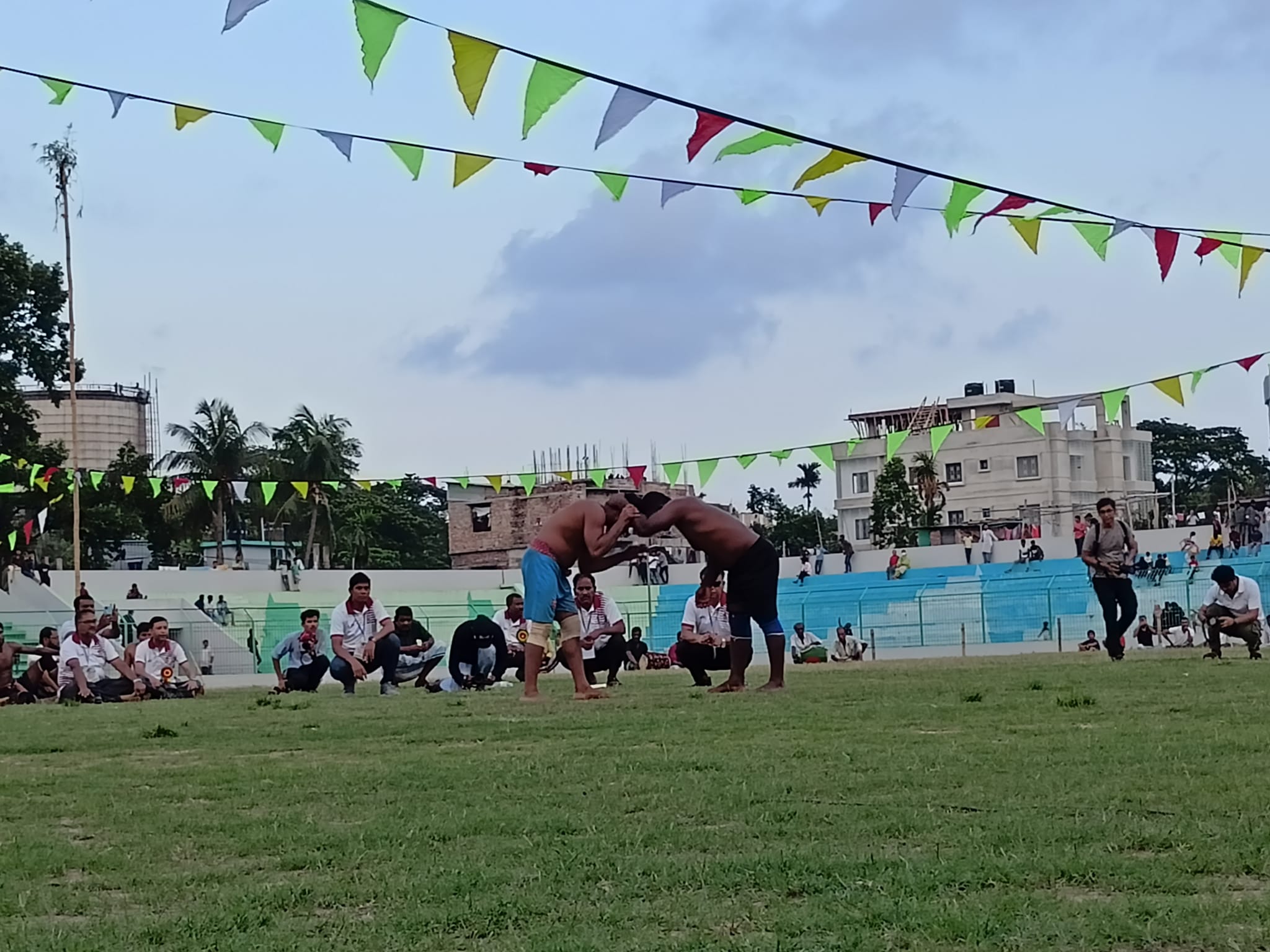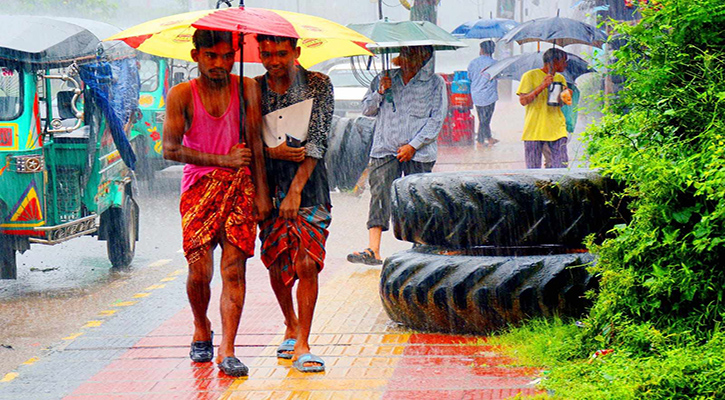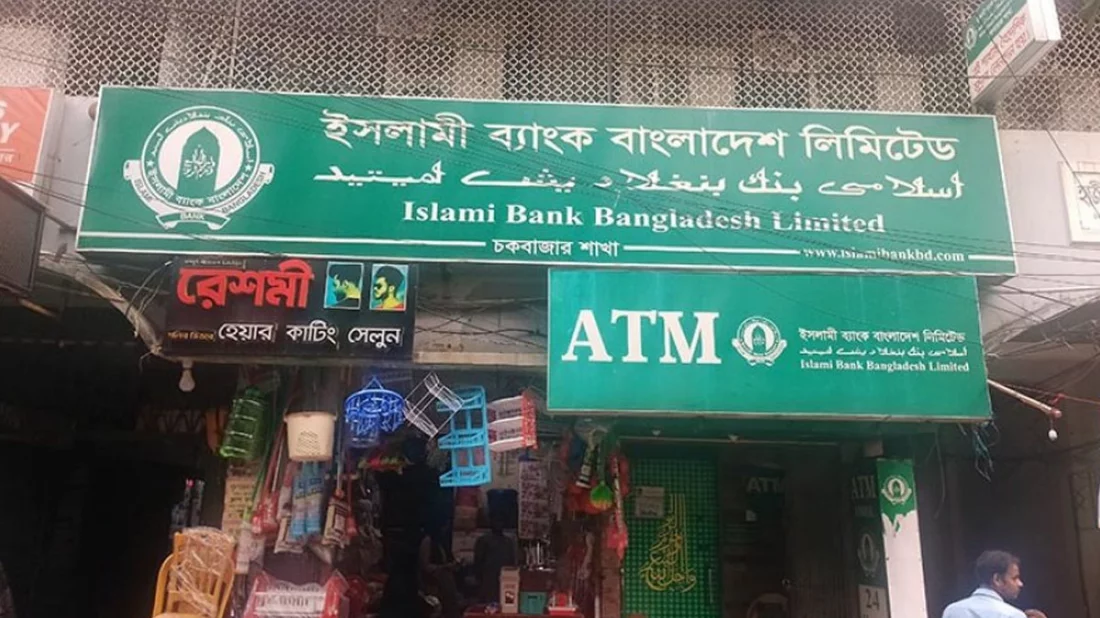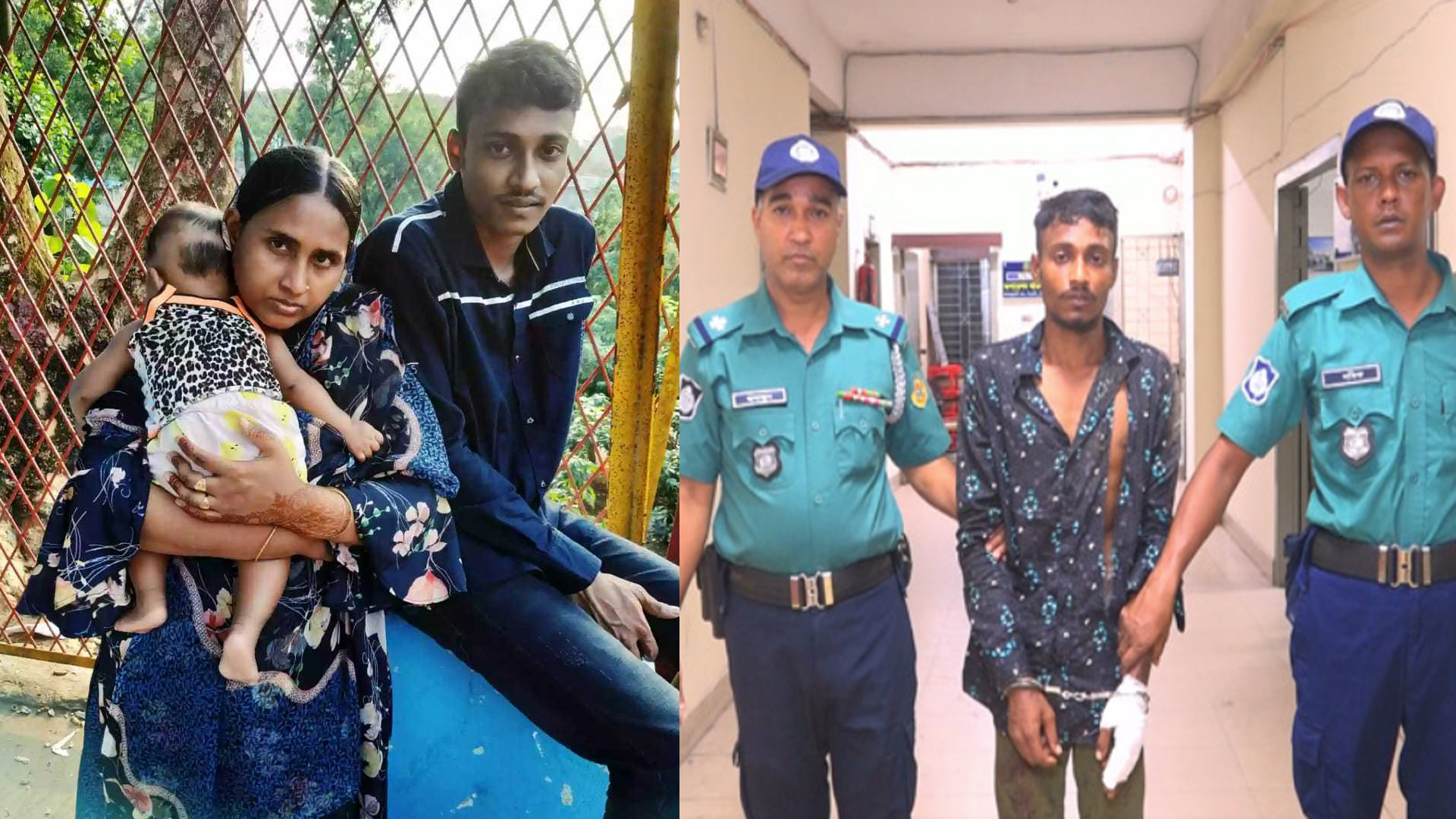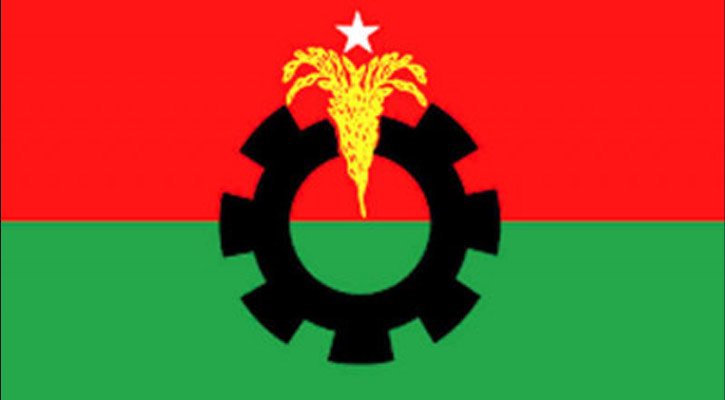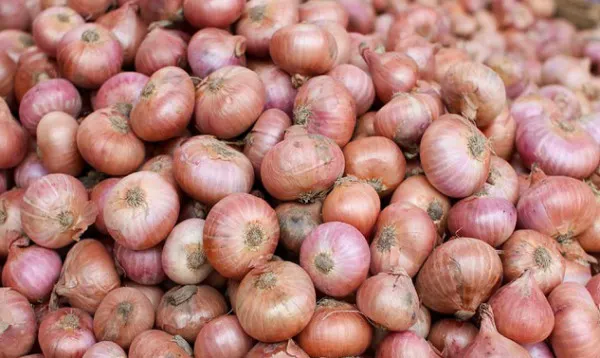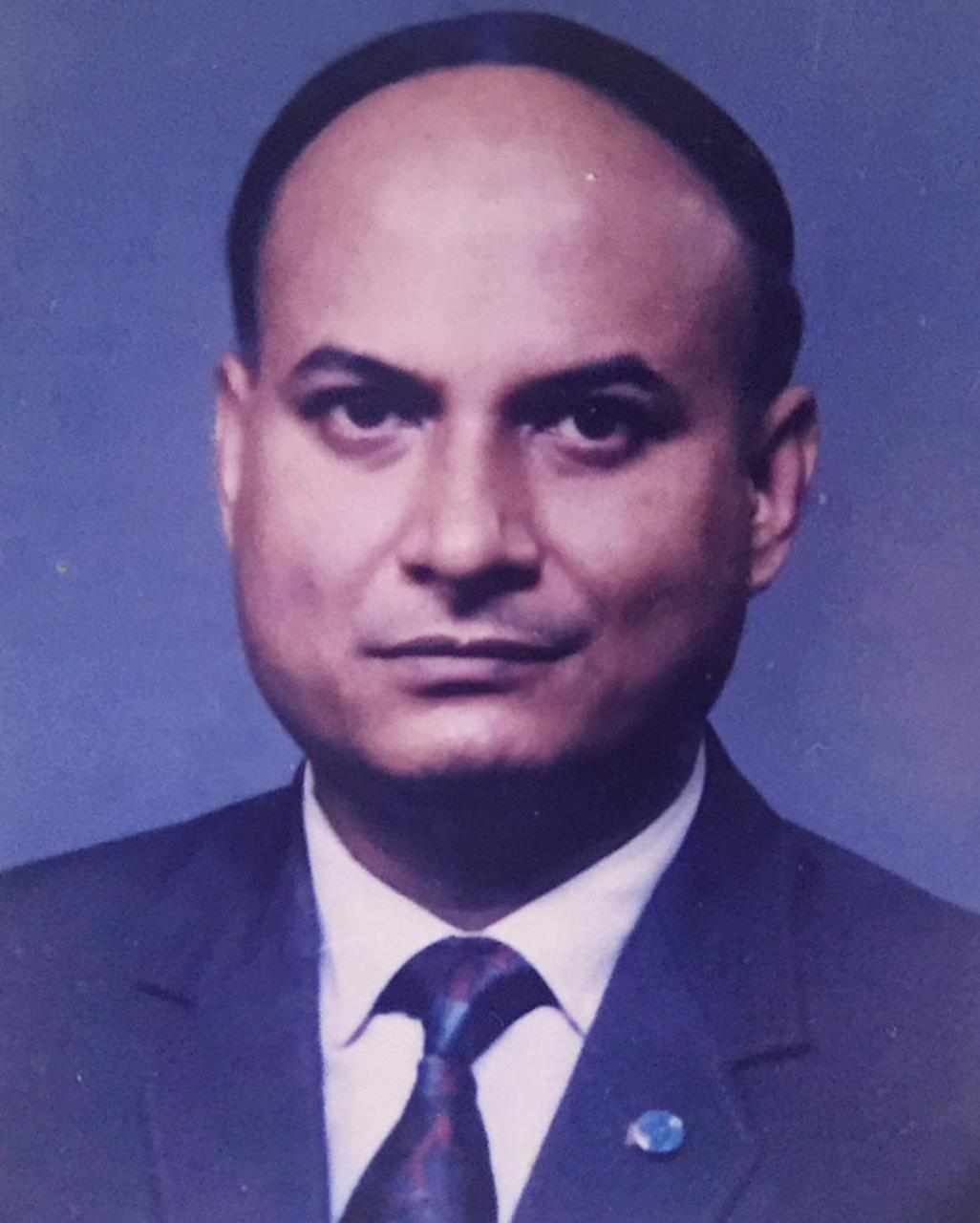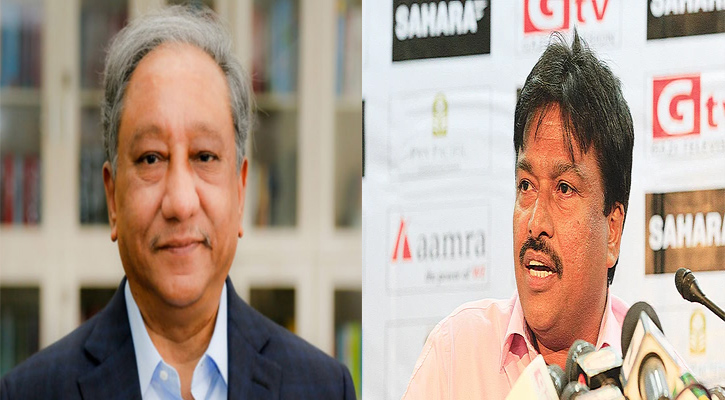Events held in Cox’s Bazar to emphasize universal access to skilled midwives
The International Day of the Midwife (IDM) was celebrated on 5th May worldwide to recognize the outstanding contribution of midwives in saving lives and promoting the health and well-being of mothers and newborns. In Cox’s Bazar, the Sexual Reproductive Health working group and health sector partners marked the occasion by organizing several events at the district and camp levels.
The event, held on Sunday, 7th May, aimed to raise awareness among different stakeholders and health partners to invest in skilled midwives and trust the evidence to reduce maternal and newborn deaths in the Rohingya and Host communities. The theme for this year’s IDM is “From Evidence to Reality,” which calls for action to improve the respect, autonomy, and working conditions for midwives and to enhance health outcomes for women and families.
There has been a reduction of maternal mortality from 269 per 100,000 live births in 2009 before introduction of midwifery to 173 per 100,000 live births in 2017 after midwifery was introduced in Bangladesh, according to the World Bank data.
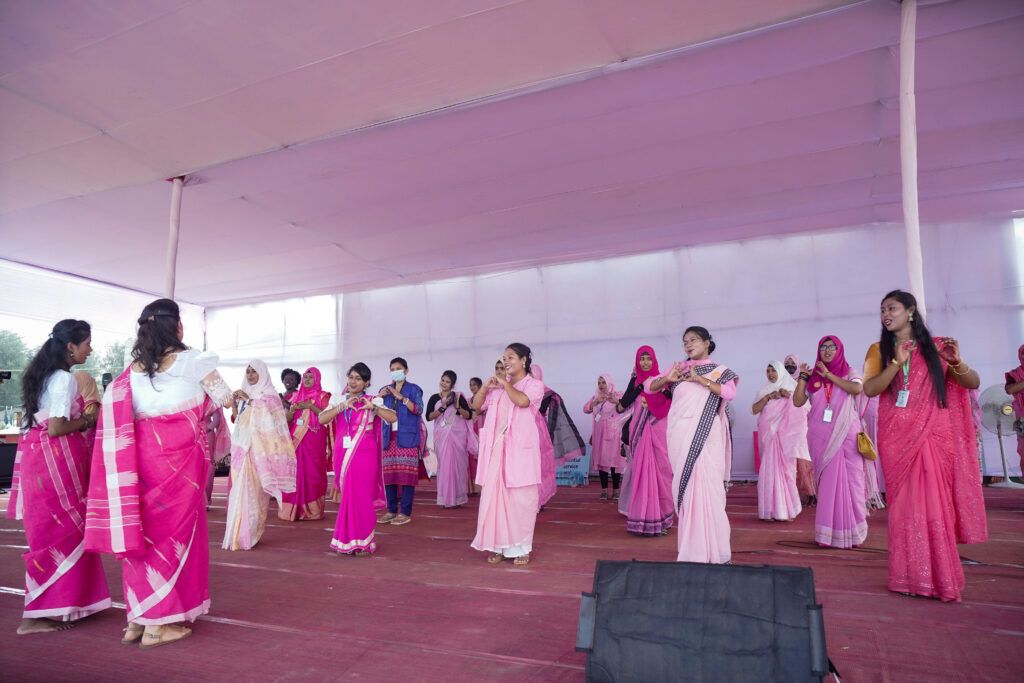
The event was graced by several government officials, including the Cox’s Bazar Additional Deputy Commissioner HRM, Md. Nasim Ahmed, Additional Refugee Relief and Repatriation Commissioner (ARRRC), Md. Samsuddouza and the acting Civil Surgeon, Dr. Mohiuddin Mohammad Alamgir, among others. The Additional Deputy Commissioner, who was the chief guest, praised the Honorable Prime Minister for her visionary initiative of improving the quality of midwifery services and education in Bangladesh. “With the SDG targets set for 2030, we are working hard to fill up the existing gaps in the midwifery profession in Bangladesh and ensure quality healthcare for all,” he said at the event.
Ms. Roselidah Raphael, Head of Sub Office, UNFPA Bangladesh, highlighted the critical role of midwives in providing essential information on sexual and reproductive health, including family planning, and helping people navigate sensitive issues in humanitarian settings. She said, “Midwives are often the only healthcare workers serving people in hard-to-reach places. If every pregnant woman had access to a well-trained, caring midwife, we would be much closer to a world where every pregnancy is wanted, and every childbirth is safe.”
At the event, Sadia Afrin Sonia, A midwife supervisor from Cox’s Bazar, shared her valuable remarks of her experience as a midwife. She described the roles of midwives in providing comprehensive sexual and reproductive health services to women and families, such as access to Family Planning, prevention of sexually transmitted infections, support for survivors of Gender Based Violence, prevention of cervical cancer, and antenatal, postnatal, and newborn care.
More than 430 midwives make up about 40% of the health workforce in the Cox’s Bazar response, the objective of the event was to acknowledge the remarkable impact this profession has made in recent years in the lives of thousands of mothers and infants in Bangladesh. The Sexual and Reproductive Health Working Group in Cox’s Bazar, led by The United Nations Population Fund (UNFPA), organized a series of awareness-raising activities throughout the week to draw attention to the issue of maternal mortality and the core role of skilled midwives in saving lives for women, girls, and newborns.
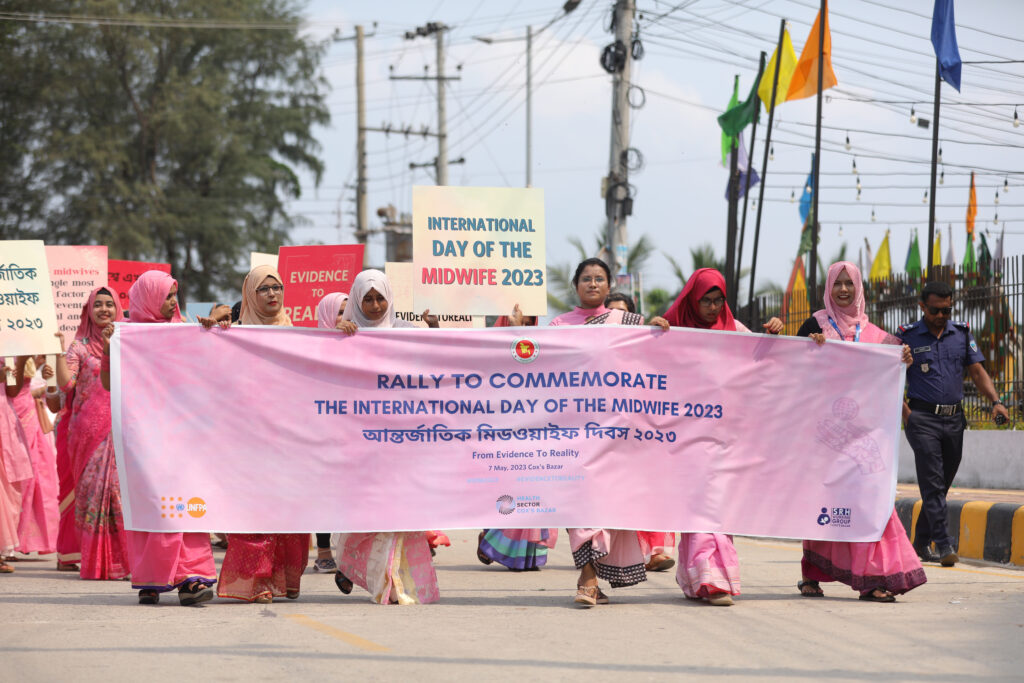
The event started with a flash mob at Laboni Beach, followed by a public rally towards the cultural centre, and the launching ceremony of the midwife fair organized by the Health Sector Partners. The ceremony included an experience-sharing session by midwives and community people, among other guest speakers. Baraa Mahgoob, UNFPA Cox’s Bazar Sub office, Team lead, Sexual and Reproductive Health and SRH Working group coordinator; Mohammadul Haque, 250 bed Hospital Superintendent, District Hospital; Jorge Martínez, Head of Sub-Office, World Health Organization (WHO), Yoko Akasaka, Head of Sub-Office, UNHCR also spoke at the event, emphasizing the importance of investing in skilled midwives to improve maternal and newborn health outcomes.


